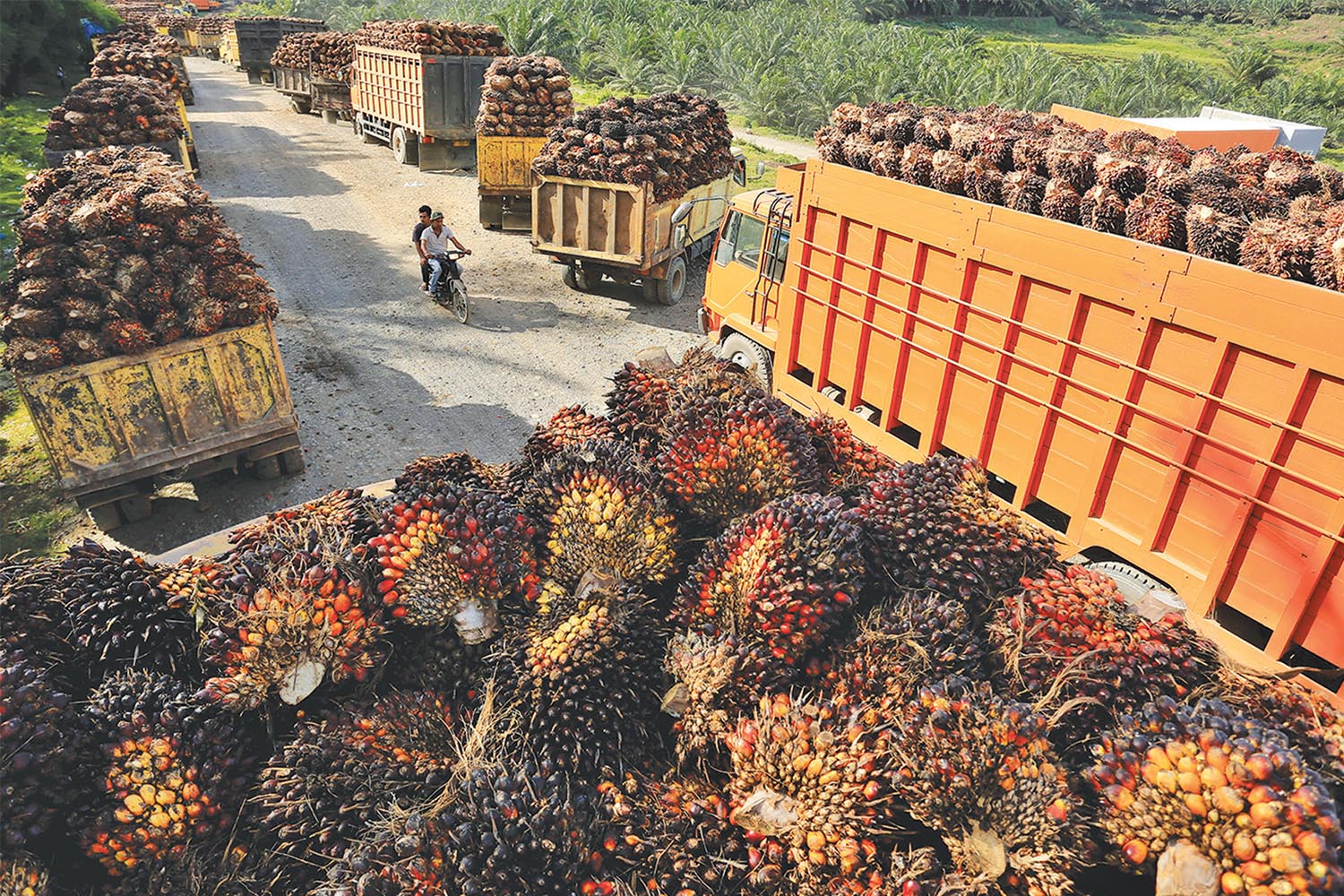Money
Import explosion and trade deficit pushing Nepal into economic crisis
Feverish consumption has been a bonanza for the trading sector, but the phenomenon brought disaster to manufacturing and agriculture sectors, experts say.
Krishana Prasain
An import explosion in the past few months has drained foreign exchange reserves to dangerously low levels, threatening to precipitate an economic disaster with most indicators showing warning signs.
Experts have described Nepal's current economic situation as the "Dutch disease" because feverish consumption has been a bonanza for the trading sector, but brought disaster to manufacturing and agriculture.
They say that a huge amount of money is being invested in the unproductive sector, resulting in a trading boom and a gaping trade deficit.
According to a research report entitled "Remittances, Banking Credit to Private Sector, and Nepal’s Trade Deficits" unveiled by the Confederation of Banks and Financial Institutions, Nepal, on Thursday, 20 percent of the loans issued by banks have gone to fund trading, which particularly represents wholesale and retail services.
Loans to the agriculture sector stood at 7.8 percent. Around 15 percent of the credit issue has gone into production. Credit mobilisation in production has been declining every year, which, experts say, is a cause for concern.
“Remittance is good, but it is hurting the country's competitiveness as all skilled and semi-skilled people are going abroad,” the report said. “The money they send back to the country is not utilised in the productive sector either.”
An example of runaway imports is provided by the ever increasing shipments of edible oils entering the country. Imports of edible oils (soybean, palm and sunflower) soared to Rs113.87 billion in the first 11 months of the current fiscal year ending mid-July.
Edible oil imports in the whole of the fiscal year 2018-19 were valued at Rs37.12 billion.
Experts say that importing and re-exporting edible oil under zero tariff privilege gives Nepali traders a profit of almost 45 percent, an advantage Nepal receives under the South Asian Free Trade Area (SAFTA).
Countries outside South Asia are slapped with tariffs of 54 percent on palm oil and 45 percent on soybean oil.
According to the Nepal Development Update of the World Bank in December 2019, Nepal capitalised on this arbitrage opportunity and significantly increased exports of the two products—palm oil and soybean oil.
The report has recommended appropriate policies to ensure that remittances are properly channelled into the economically productive sector or enhance exports by developing compulsory savings and investment provisions.
As per Customs Department statistics, Nepal’s total import bill ballooned to Rs1.76 trillion in the first 11 months of the current fiscal year. The figure represents a staggering year-on-year jump of 27.5 percent.
Remittance earnings in the first 10 months of the current fiscal year stood at Rs811.79 billion, according to Nepal Rastra Bank.
The report said that remittance, bank credit to the trading sector and the trade deficit had increased from 1996 to 2019 before the Covid-19 pandemic briefly slowed things down. The growth trend, particularly imports, maintained its momentum in the current fiscal year, which, experts say, is a full-blown emergency for the country’s ailing economy.

Remittance inflows have risen sharply since 2001, growing by 2 percent to 11 percent annually with political instability playing a major role in driving youths to go abroad to work for lack of jobs in the country.
There is a mismatch between remittance and job creation indicating that most of the money is going into consumption rather than production or employment creation.
Ramesh Paudel, associate professor at the Central Department of Economics, said that when loans are mobilised in trading, this will support consumption, thereby promoting imports.
“It is important that banks and financial institutions focus on increasing their loan issue to the productive sector,” he said.
Paudel said that Nepal had witnessed a growth in the service sector, but without the manufacturing base being strong enough, it did not last long. Experts say that for there to be a sustainable economy, the manufacturing sector should be strong so that the service sector can absorb the goods it produces.
Credit issue needs to accord priority to agriculture, hospitality, import of goods such as machinery and productive equipment, healthcare and small and medium scale industries, the report said.
“Bank credit to the private sector, particularly for trading, has a strong association with the trade deficit of 85 percent, resulting in the majority of the credit being absorbed in the unproductive sector,” the report said.
"If most of the credit is provided to the unproductive sector, this situation weakens the economy," the report said.
"Lenders and policymakers normally focus on achieving the economic growth target by financing the productive sector; but in Nepal’s case, it does not seem to have been done that way," the report said.
“The central bank, banks and financial institutions and policymakers are equally responsible for the faulty policy,'' bankers said at Thursday's event.
Pawan Kumar Golyan, president of the Confederation of Banks and Financial Institutions, Nepal, admitted that banks and financial institutions had overlooked investment in the productive sector.
“We have to admit that the private sector is investing more in unproductive sectors like trading. Bank investment in trading is, in fact, promoting the trade deficit. Though trade contributes to revenue, it is not a sustainable business to create employment and contribute to economic growth in the long run,” said Golyan, who also chairs NMB Bank and the Golyan Group.
He stressed the need for a dual interest policy with a single-digit interest rate for the productive sector and a double-digit interest rate for trading businesses.
The Confederation of Banks and Financial Institutions, Nepal has suggested that the government could bring attractive offers to save a certain percentage of the remittance inflow or offer a special interest rate on remittance deposits.
The report has recommended launching attractive savings schemes for non-resident Nepalis and encouraging them to invest in the stock market.




 22.28°C Kathmandu
22.28°C Kathmandu













